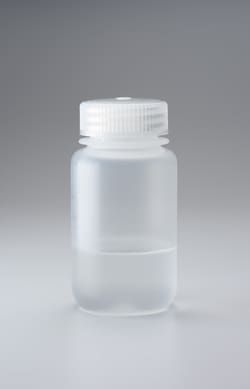R062580
Thermo Scientific™ Phosphate Buffered Saline (Cold Enrichment Broth) pH 7.6
Manufacturer: Fischer Scientific
The price for this product is unavailable. Please request a quote
Description
Phosphate Buffered Saline
Format
15mm x 103mm Tube
Product Type
Buffer Solution
Quantity
100 x 5 mL
Related Products
Description
- Selectively isolate Yersinia enterocolitica using Thermo Scientific™ Remel™ Phosphate Buffered Saline (Cold Enrichment Broth) pH 7.6
- Cold temperature enrichment of clinical specimens prior to inoculation of media has been reported to improve recovery of Y
- enterocolitica from fecal specimens 1-3
- Weissfeld and Sonnenwirth demonstrated cold enrichment of fecal specimens resulted in an incidence rate of yersiniosis equal to that of salmonellosis 4
- Yersinia enterocolitica is challenging to isolate and identify in the clinical laboratory because it grows slowly at 37°C and produces biochemical reactions that are very similar to other enteric gram-negative bacilli 5
- Y
- enterocolitica can survive and grow at the low temperature, while most other microorganisms cannot
- The ability of Y
- enterocolitica to grow at cold enrichment temperatures to improve the recovery of certain bacteria from foods, environmental samples and clinical specimens from asymptomatic carriers and patients who are beyond the acute (diarrheal) stage of illness 2,3,6-10
- Ready to use: Convenience of a prepared media Selective : Phosphate Buffered Saline pH 7.6, when used at refrigeration temperatures, acts as a selective medium for Yersinia in food and clinical specimens Useful for epidemiological studies when specimens are contaminated with commensal microbial flora The medium contains sodium chloride which maintains osmotic equilibrium
- Monosodium and disodium phosphate salts act as buffers to maintain the pH at 7.6 ± 0.2 @25° C
- Not all products are available for sale in all territories
- Please inquire
- Remel™ and Oxoid™ products are now part of the Thermo Scientific brand.

